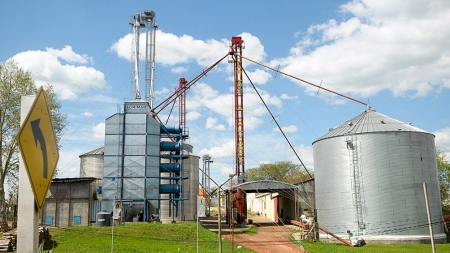Agro-industrial exports, added to those of primary products and manufactures of agricultural origin, reached a record figure of US$ 39,549 million between January and August this year, which means that if the trend continues, they will close 2022 with a historical maximum of US$ 55,000 million, according to an analysis by the Agricultural Intercooperative Confederation (Coninagro).
The study also highlighted that “the Argentine agro-export complex generates more than two thirds of the total exported by the country”and specified that “exports of primary products (PP) plus manufactures of agricultural origin (MOA) have generated exports of US$ 223,827 million in the last five years, taking into account the estimate for 2022.”
“And so far in the 21st century, the total accumulated figure is US$ 762.995 million of agro-exports”indicated Coninagro, who highlighted that “the relevance of the amount qualifies the importance of the Argentine agro-export sector, which generates more than two thirds of the total exported by the country, which manages to enter significantly in complex and distant markets of Asia, Europe and, North Africa like no other industry”.
In addition, he stressed that the agribusiness sector “generates a share in the total world exports of its category, of about 2%, which multiplies by far the Argentine total in all items, of 0.3%and that competes with qualified technology, geostrategic relevance and multiple participation of large, medium and small companies”.
“We see with amazement this powerful export capacity of the sector even in adverse situationsand we take advantage of this data support to request once again the tax reduction”, said the president of Coninagro, Carlos Iannizzotto.
???Agro-exports in historical record once again highlight the relevance of the sector
? The Argentine agro-export complex generates more than two thirds of the total exported by the country.
✍See the full report here ⤵https://t.co/sXIXXx82Jl pic.twitter.com/McYwr3rRSz
— CONINAGRO (@CONINAGRO) October 20, 2022
The analysis pointed out that “The sector reaches these record numbers even in disadvantageous conditions compared to its competitors for endogenous reasons, such as lack of financing, macroeconomic instability, excess of obstructive regulations, export taxes and exchange rate gap”.
He also mentioned the “Exogenous reasons, such as the payment of tariffs for entering foreign markets due to the lack of free trade agreements.”
In any case, he stressed that agribusiness has “a remarkable capacity for resilience highlighting the magnitude of the sector”.


















